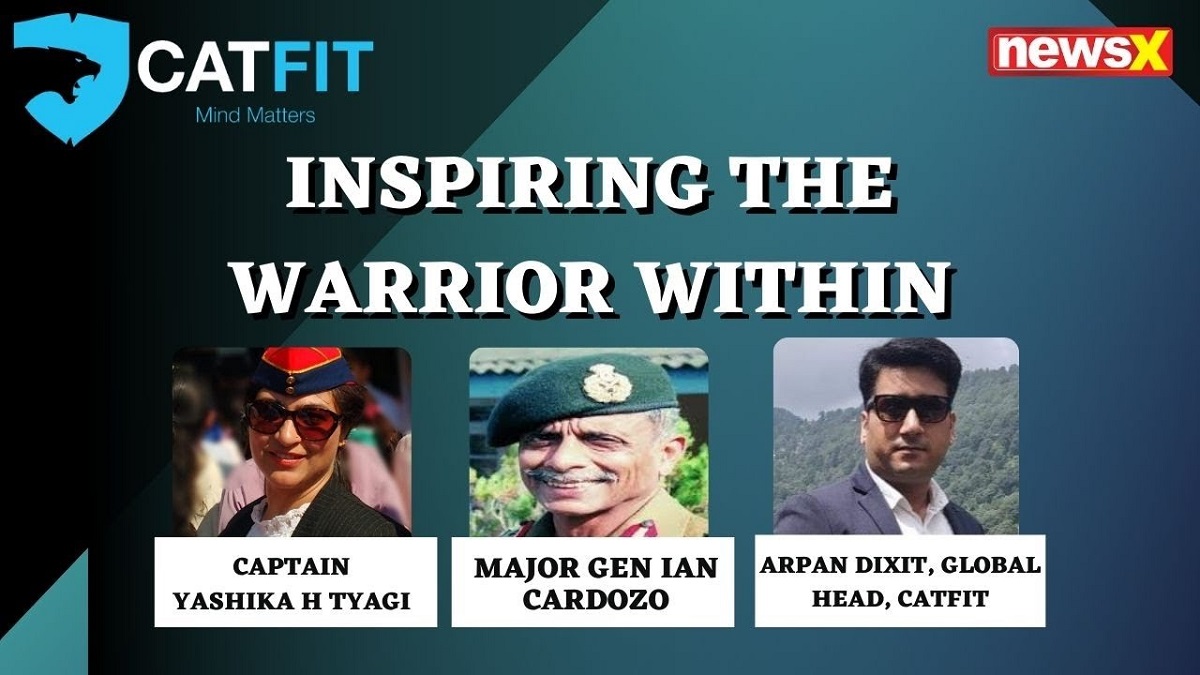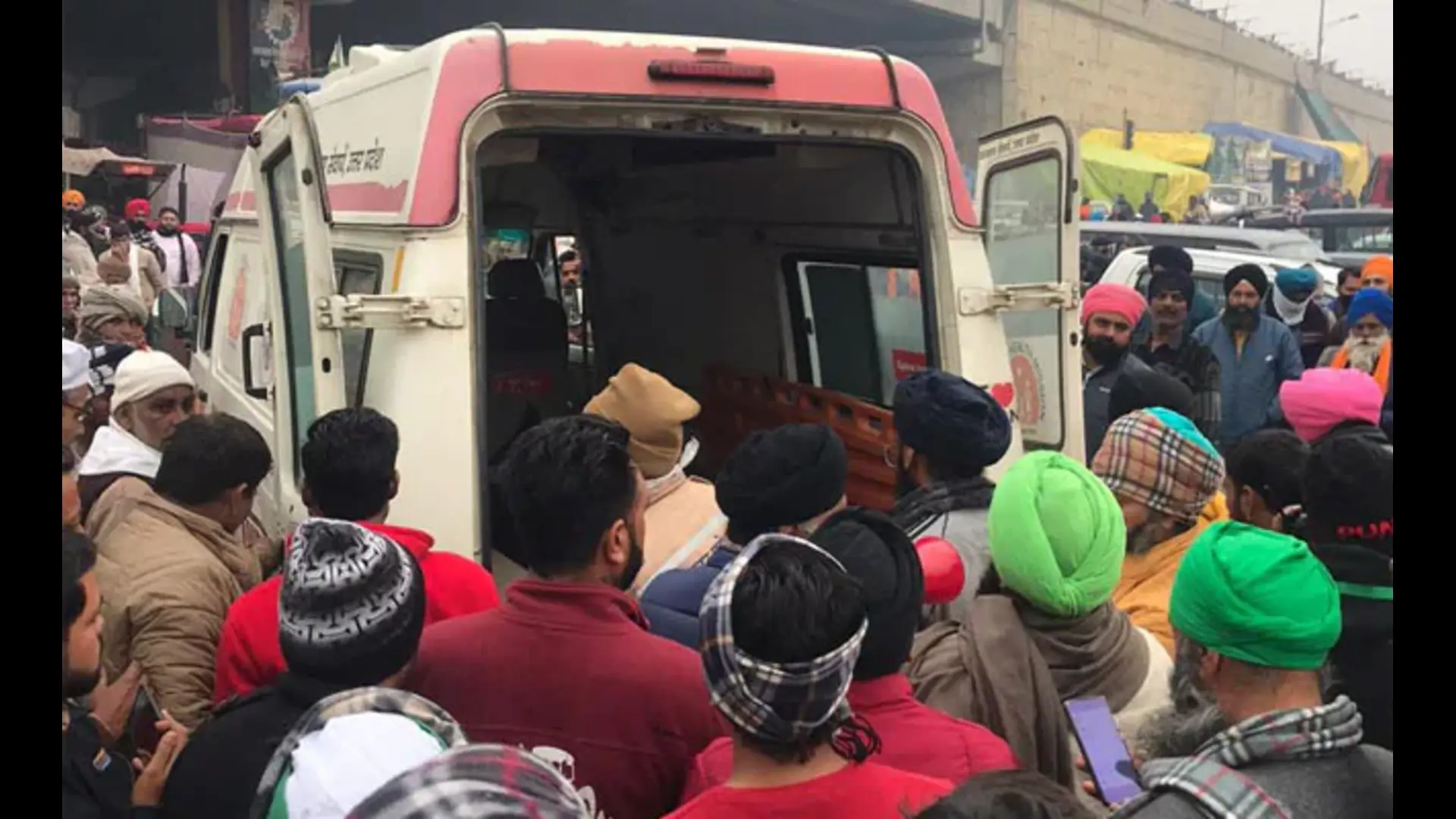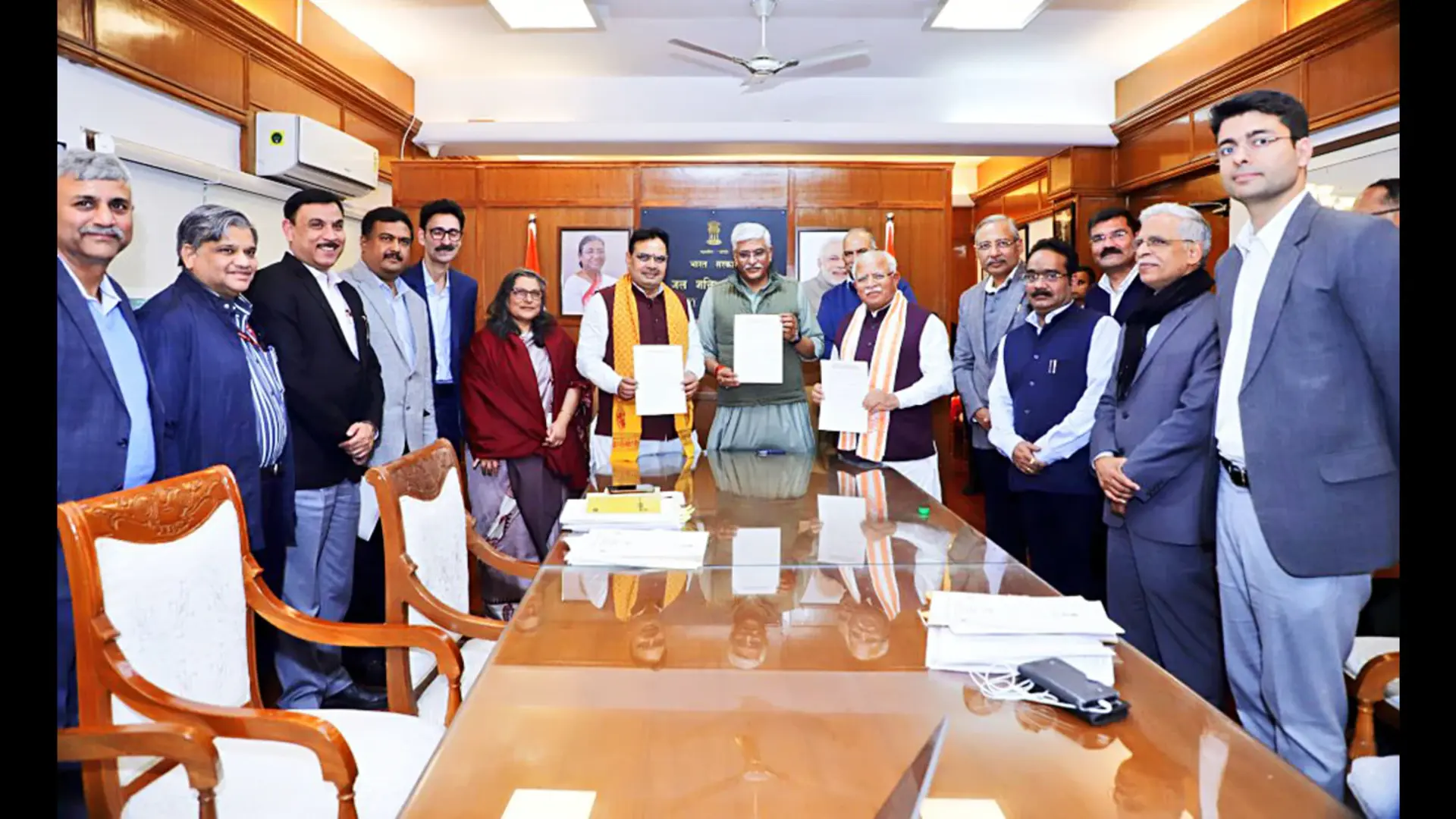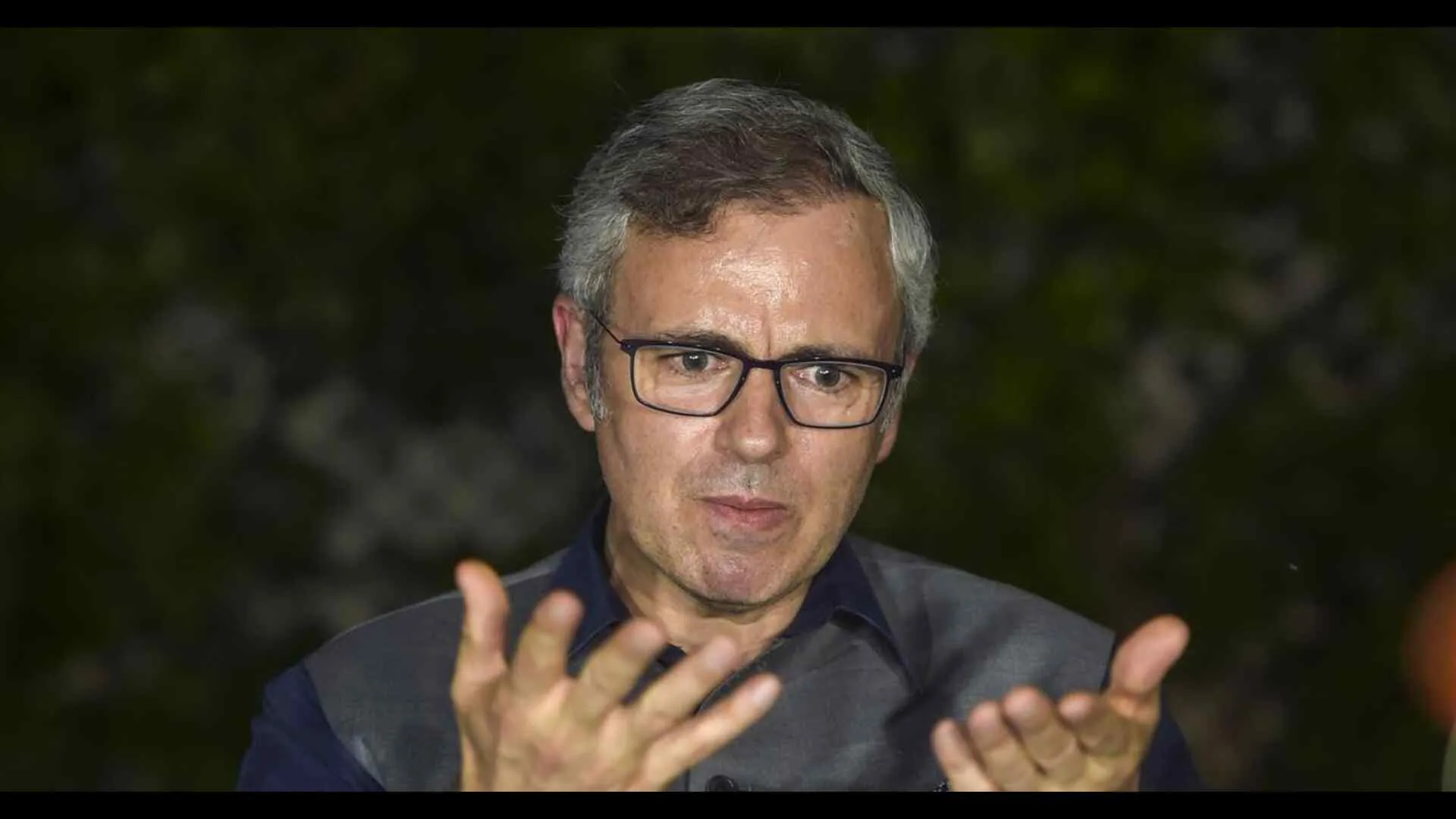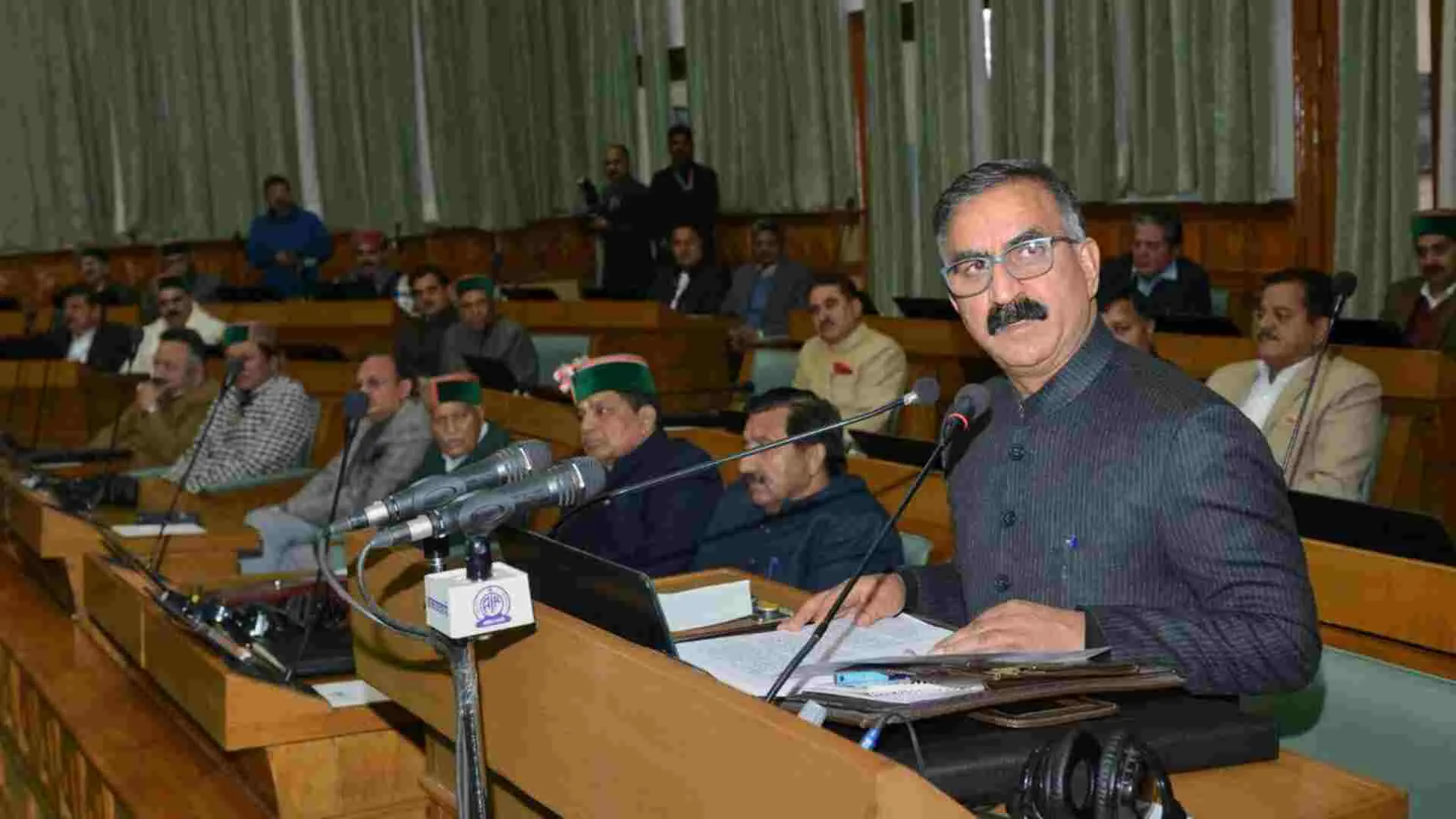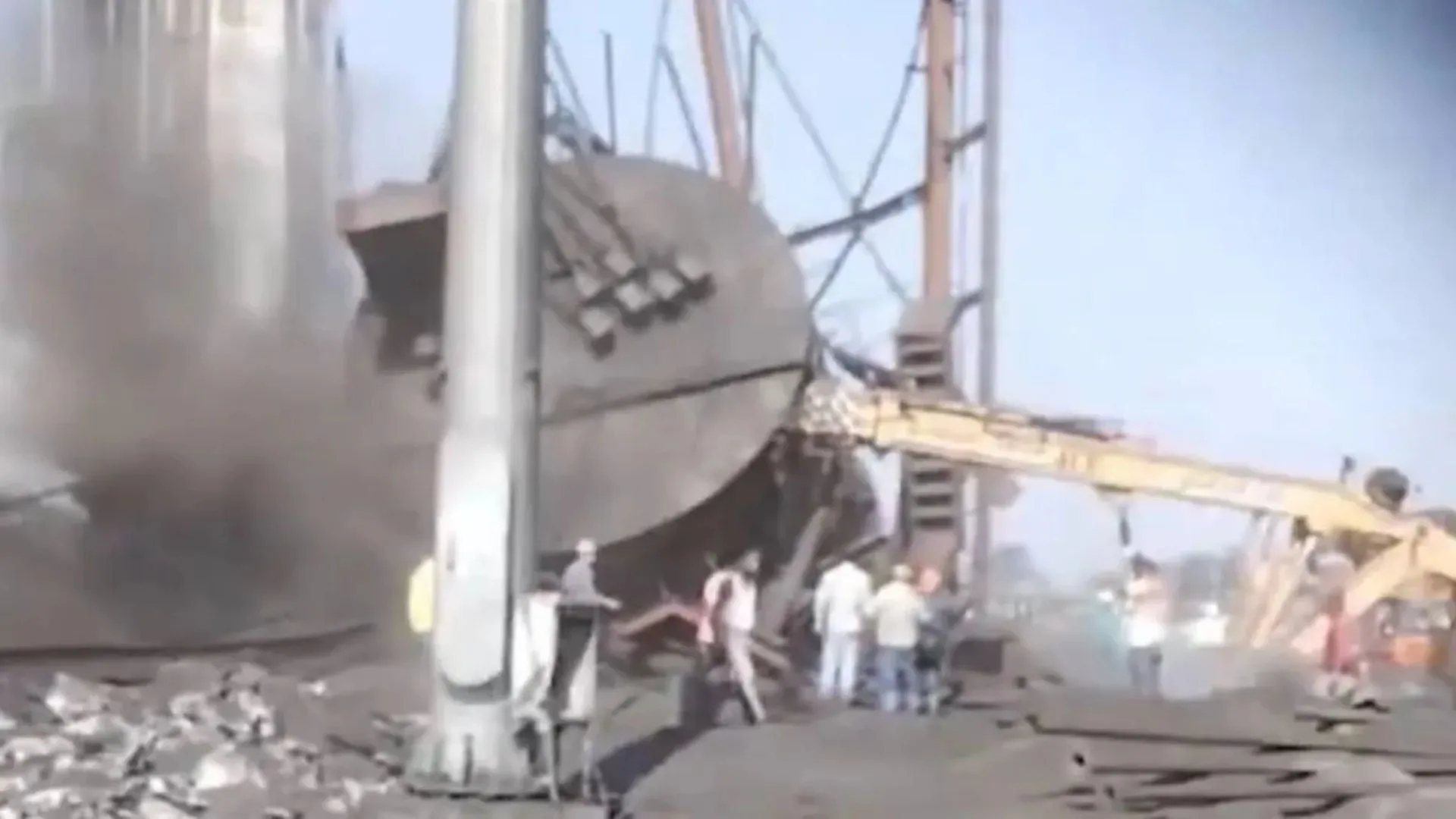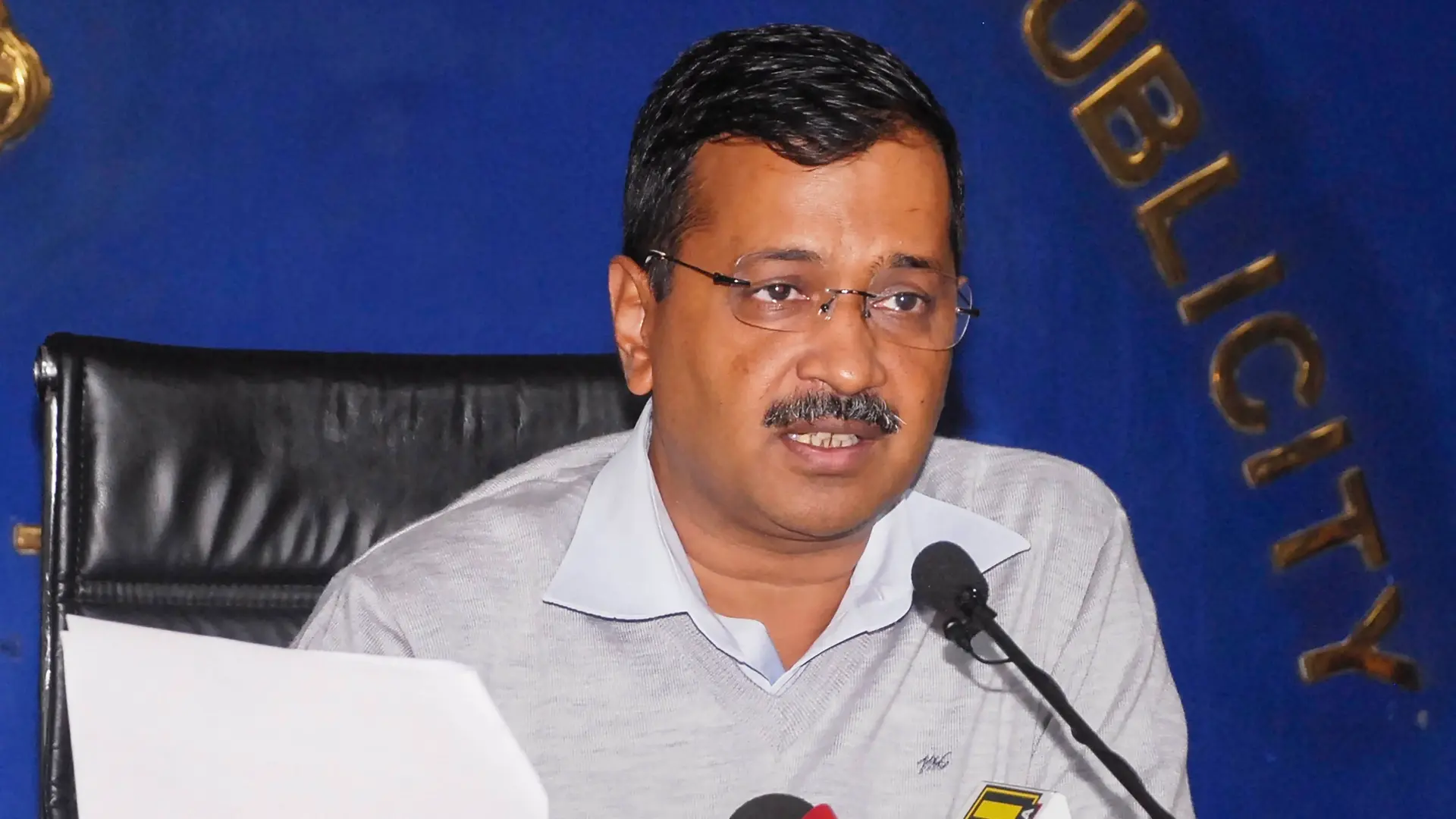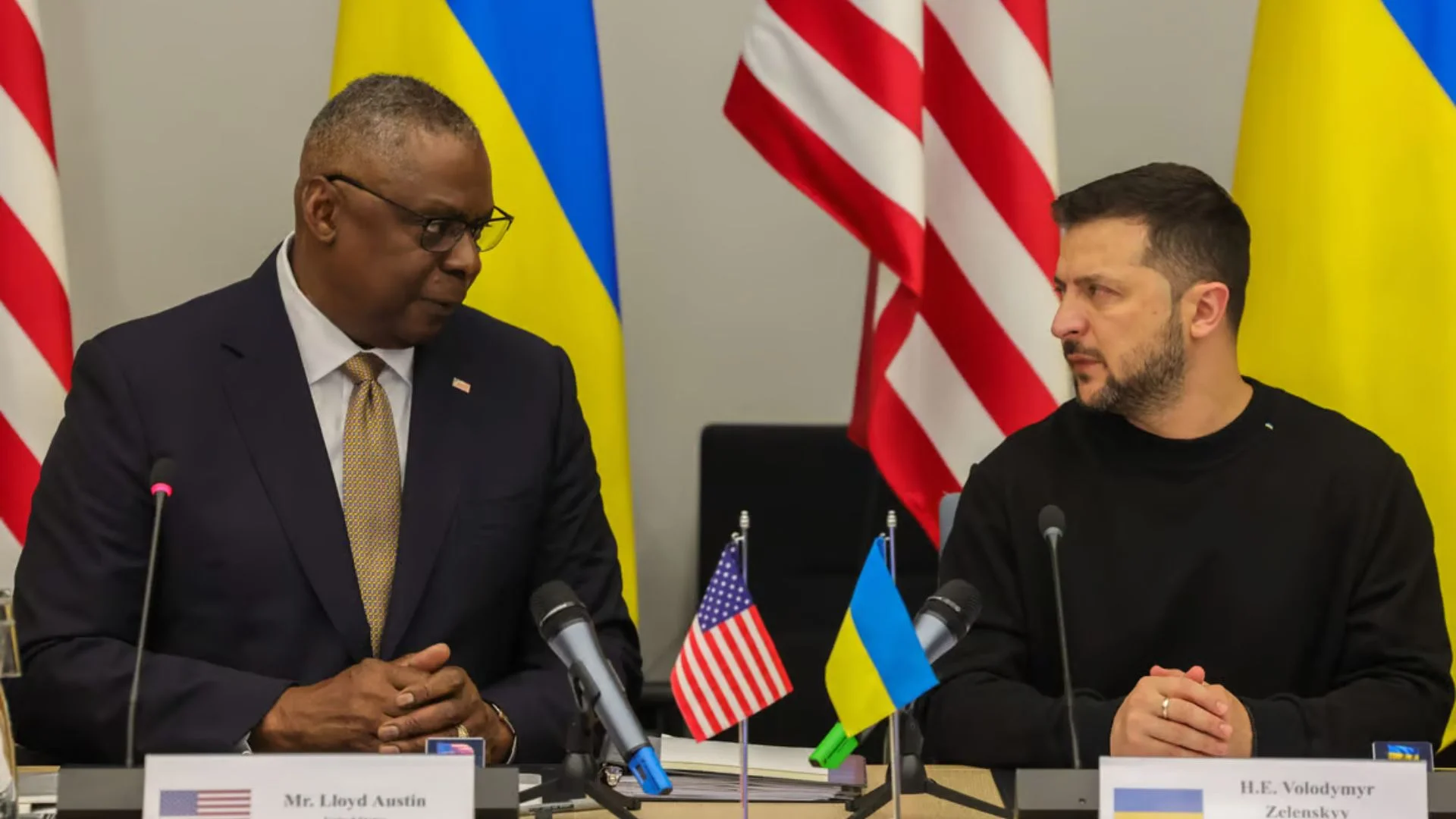Presented by Catfit, ‘Inspiring The Warrior Within’ is both an informative and inspiring series that addresses the ways to tackle mental adversities and challenges faced by people. In this episode, a power-packed panel joined NewsX and shared how people can control the outcomes of the challenges they face simply by “the application of the mind”.
The panel included Major General Ian Cardozo, Arpan Dixit, Global Head, Catfit and Captain Yashika H Tyagi. Captain Yashika H Tyagi introduced Major General Ian Cardozo in her inaugural address. She said that when the 1971 Indo-Pak war was at its peak and the race to Dhaka had begun, it was the time to take surgical and decisive actions and the Indian Army decided to conduct its first-ever heliborne attack. At that time, young major Ian Cardozo and his brave Gorkha troops were airdropped deep inside the enemy territory.
Captain said, “Their objective was to secure Sylhet airbase and to give a bloody nose to enemy defences. For nine hellish days and nights, these brave Gorkha troops kept up the offensive and gave the enemy shivers with their warcry, “Jai Ma Kaali, Ayo Gorkhali!”
A landmine blew up in close proximity to Maj General Ian Cardozo and, despite there being no morphine or any other pain-numbing medication, he brandished his Khukri knife and severed his badly wounded leg. This unbelievable story is true to the Catfit moto, ‘Mind Matters’. Major General Ian Cardozo Ativishisht Seva Medal, Sena Medal gallantry has shown that if mental courage had a face and if resilience had a face, it would be a face of Major General Cardozo.
Joining the conversation, Arpan Dixit, Global Head, Catfit highlighted the ability of Major General Cardozo to cope with adversity and his sheer resilience levels. Arpan then asked Major General to share some pieces of advice for the youth as the world is currently facing a pandemic.
Maj Gen Cardozo said, “A little bit of background, 1962 was followed by 1965 when Pakistan attacked us when we had not fully recovered from 62. But in the army, we have something known as “lessons learned”. From 62 and 65, we learnt our lessons, shaped our policy, shaped our aims and objectives, and won a brilliant victory in 1971. Now, you take the Spanish flu, which took place after world war 2 in 1945. What lessons did we learn? I’m afraid we did not learn any lessons. So, what is important is mind over matter and that is best translated by the application of mind. My message to all from these two examples is, first, we need to assess the situation, having assessed the situation and analyzed the problem, we have to apply the mind and face the situation. In the army, we call it biting the bullet, you don’t run away from a situation, you face it and bite the bullet and sort out the problem. So, find a solution and that solution may have problems, but we should never be afraid we should do what is right irrespective of the consequences. Never be afraid and never give up. You will see from the above that this mental resilience, this power of the mind is the application of the mind over matter, that’s my message.”
Major General Ian Cardozo was in Sylhet in the first-ever heliborne attack carried out by the Indian Army. Sharing insights from the same, Major General Cardozo said, ” So we started the war with just 384 people because the leave parties hadn’t texted back from Nepal and we had suffered heavy casualties in the Battle of Gazipur. When we received the message that we have to capture Sylhet, at that point in time, we had entered the war with 18 officers. By that time, three had been killed, and four had been wounded. So there were only 11 officers left out of 18 and similarly, and proportionally we lost a lot of men. So the CO was getting together to reorganize the battalion when he was told that this is what you have to do. He said, I need time, they said that there is no time. The brigade which was in Sylhet had vacated Sylhet and had gone to the defence of Dhaka. So the CO said that he doesn’t really believe that Sylhet could be vacated because Sylhet was an important defence position of general Niyazi’s fortress policy of defending Dhaka. So Sylhet was providing defence depth to Dhaka but he said no, accept the situation, there is nobody there. So he applied his mind and said, okay, this is what they’re saying, I really don’t believe it, what should I do? And therefore, he took the confidence of his officers and his men and the JCOs and they decided that instead of taking food, water, blankets and other accessories, they will take only more ammunition and grenades, that is the application of the mind!”
Arpan Dixit said that since not everyone can join the Indian Army but everyone requires mental toughness, Catfit goes from school to school, colleges and corporate organizations wherein veterans of the special forces and the NSG provide mental toughness training to people. Arpan then asked Major General Cardozo to share his views on the significance of Mental Toughness over Physical Fitness.
In response to Arpan’s question, Major General Cardozo said, “In my opinion, mental toughness is a part of the mind over matter, it’s a part of the application of the mind. It is important, it is a part of a combination of physical courage and moral courage. Therefore, it is important. What I would like to say is, how can we develop this? I believe it starts from the home, it starts with the family, the values that the mother and the father gave the child right from childhood that is followed up by schools and colleges. My values were shaped by my mother and father. My mother told me never do anything wrong, for which I will have to hang my head in shame and my father said, Do not be afraid you are going to lead men and lead them into battle, never be afraid. So it started from my home and then I learned good values from my school St. Xavier’s school and St. Xavier’s college, that was further enhanced in my battalion. So there are three stages- family, education institutions and the corporate or the military institution you belong to. Therefore, I would suggest that catch it as a bigger aim and a bigger plan, if you want to change, change not only small portions of this country, plan to change India. For that, when you have your programs, have a day by which the parents of those people are also called and tell these young adults that one day they are going to be parents and therefore, family attitudes are very important. I’m very happy to know that you carry them into the corporate sector. So, in this manner, family, educational institutions, corporate sector, you can change the face of India. But basically, it is the attitude, attitude shapes behaviour, behaviour shapes conduct and conduct shapes outcome. So, attitude, behaviour, conduct and outcome. So, again, it is mind over matter, mind is the most important thing. Unfortunately, we do not tax the mind enough, we are mentally lazy. Therefore, what you are doing is a great job, enhancing the capacity of the mind to assess situations, analyze these problems, find solutions, not be afraid and then ensure that the outcome is right.”
Throwing some light on the kind of programs that Catfit conducts to enhance mental toughness, Arpan said, “There are several programs that we are conducting at the grassroots levels, and primary ones are wherein we are conducting psychological evaluations to determine the psychological, mental and emotional health of children and people in the corporates. Once we’ve identified their mental health or psychological health, then we provide them with counselling and post that speakers and motivational speakers like Captain Yashika, they come in and provide mental toughness training, so this is one program. The second program is where we’ve got people from the special forces and the black cats, who go to institutions and organizations and teach military-grade self-defence, so that is what we are doing. The third program is we know that there are almost 200,000 people who die in road accidents every year, there are almost 20 lakh people who suffer from heart attacks but the fact of the matter is that there is nobody who knows basic CPR, who knows basic trauma management or basic first aid. So trauma management, CPR and first aid, this is one of our primary programs as well, where our concept is if we teach the students of today trauma management, CPR and first aid we can cut down in terms of casualties on the road, or because of heart attacks that take place. Lastly, for the corporates, we’ve got an elite Leadership Program wherein we are part passing the best of breed best of services from the lessons that have been learned from the Indian defence services into the corporates and how they can become better leaders like the special forces or blackout officers.”
Captain Yashika H Tyagi is a Kargil War veteran and is also from the very, very initial batches of Lady officers being inducted into Indian Army. “Coming into the army by itself was absolutely a very, very different and a very difficult career choice. I think my mindset stood me in a good state when I joined the army when I got through my training into the academy and passed out with medal. And also, after that, I got posted to uncongenial climate areas. The warrior mindset, the attitude of Never Say Die, never back off, resilience, these are the things which Maj Gen Cardozo has also narrated and which he has also passed on to us through his stories. So when I joined Catfit, my basic aim was to share my service experience plus mindset, plus the experiences to the corporates, to the students and to the youth in general. So we did a corporate training program with a multinational company that is, I think, number one European company in Electrical and Electronics and when we did that program, the thing that we passed on to them was how corporate is a war zone in its own sense, and how a warrior mindset is going to not only make you survive but also going to make you stay ahead of the learning curve to keep you fighting the competition and to survive it and we did a complete 360-degree program as to how to be mentally tough, how to be physically tough, how to be nimble, agile and alert, how to counter the stress, how to develop that warrior mindset and the response that we got was amazing. They said that we feel like we are boots on the ground, we feel like we are actually that burning sole of the boot and we are ready to fight on into our day to day battles, where career, family, stress, environment, health, everything is at stake and we take on everything and move on. It was a very very wonderfully received program by this multinational, so we are moving ahead, I am trying to pass on whatever I can to all the different cross-sections of society,” said Captain Yashika.
Major General Ian Cardozo lost his leg in the prime of his life and career, addressing how he dealt with it, he said, “I think the answer to this is one word and that word is love. Now, you might say, what this army General knows about love but the issue is that I loved my life in the army and I was not prepared to change my way of life and I thought to myself, I need to find a way out, by which I can continue to command troops. At that time, the mindset of the army was quite clear, you become a battle casualty, you lose a limb, forget about coming back to troops. They would keep you in the army, but you would be a bubble, you will do a staff job for the rest of your life. I was not prepared to accept that but I did not know how I would achieve my aim. So the answer, I think, looking back is out of box thinking. Applying and hoping and going to court was not the answer. The answer was to prove to the army that I was as good as anybody else. And therefore, I decided to get myself physically tough, mentally tough, accept the challenge, and find a solution. When you have the right attitude when you have the right mindset when you’re determined when love is backing you up, there is a God above and I do believe that God has helped me in many ways. An opportunity came my way when I had to do a battle physical efficiency test and I think I kept on training every day, I used to run about five to six kilometres every day, I ran so much that the metal bolts securing the foot with the wooden leg broke but I was doing five to six kilometres a day and when the test came, I came ahead of seven other people with two legs and that impressed the officials of the army. When I applied for the battalion, there are many other tests, it took me seven years fighting the system to prove that I was as good as anybody else and then the biggest test came when a boy was drowning in the sea and nobody had the guts to jump in. I had to take off my leg, go to the water and get him back. After that I had no problem, people accepted that not only was I as good as them, but in some ways, I was better.”

